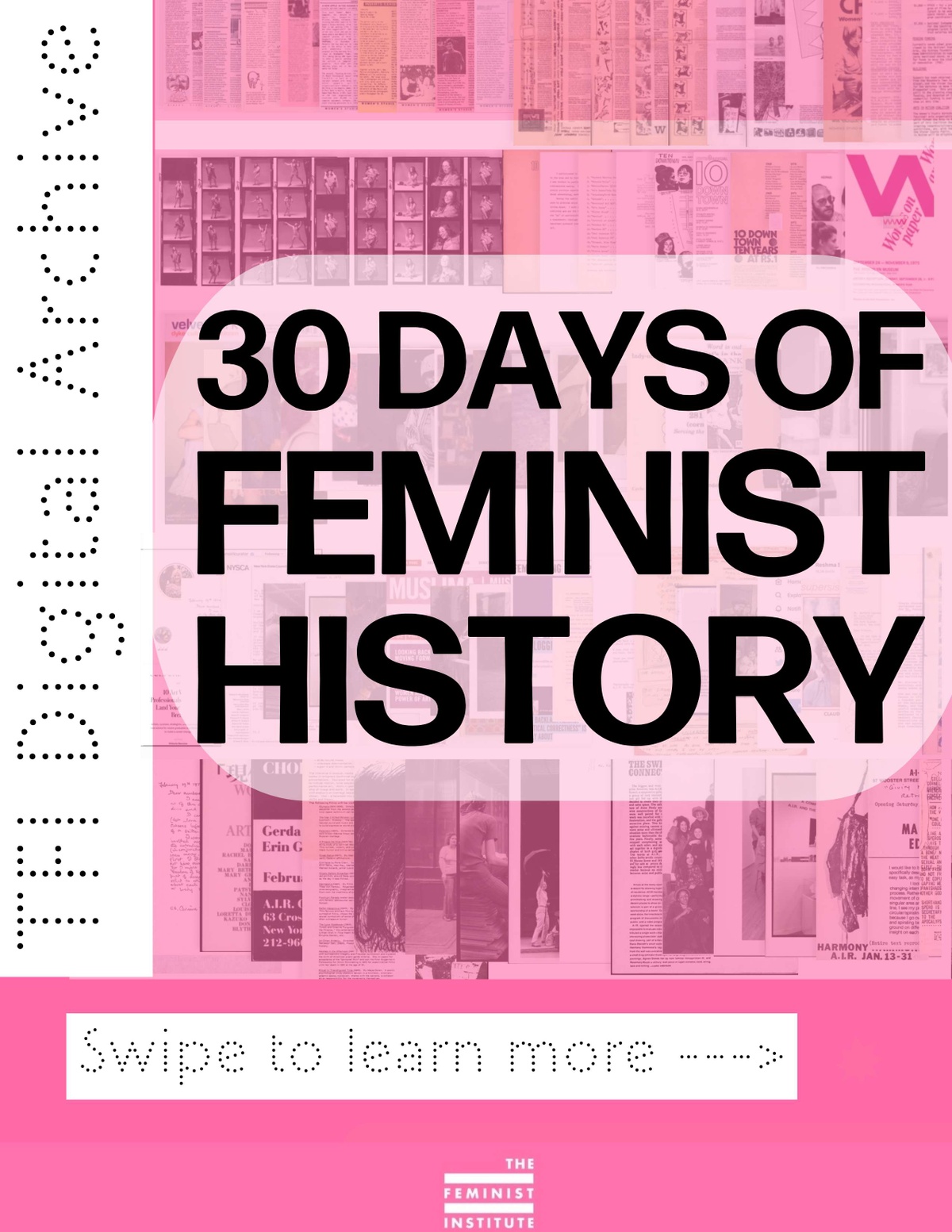From Appointment to Collection: The Dindga McCannon Collection and the TFI Pop-Up Memory Lab
Allison Elliott Feb 29, 2024 7 Minute Read
The Feminist Institute is thrilled to announce both the launch of Dindga McCannon’s Capsule Collection and our second annual Pop-Up Memory Lab, happening between March 7 and April 20 at Pen and Brush in New York City.
Partnership Model
Our work with McCannon, starting with our initial collaboration at the Memory Lab and ending with her new capsule collection in the TFI Digital Archive, is a key case study of how our partnership model functions.
At TFI, we center our partnerships around feminist ethics of care, shaping these relationships through a framework of radical empathy and mutual responsibility. While our goal is to increase digital access to feminist documentation, our primary commitment is the relationships with our partners, users, the community, and other information professionals. We aim to create care-focused, context-dependent partnership plans that center people and ensure all parties feel supported and excited about feminist legacy-building.
In terms of our Memory Lab, it has been amazing to see our collection grow out of a program that is designed to bring archival services to the public, free of charge, while also creating a space for people to create connections over their shared interest in archives, feminist culture, and history.
Collaborative Cataloging
As part of our feminist ethics of care praxis, TFI utilizes a collaborative cataloging model to ensure an accurate description of materials that reflects our records holders’ experience. To do this, we interview our partners about their collections and transcribe them into material descriptions.
McCannon and I had two Zoom sessions to develop material descriptions. In the first session, we went through each object, and McCannon gave me details about each—from who created it, to the year and interesting anecdotes.
For example, the photo below shows McCannon with one of her works. At first glance, an archivist might describe the object as just that—the artist with their work. But by interviewing McCannon about her materials, I learned that she was wearing one of her quilted vest pieces and that the work she’s in front of is about women in McCannon’s life who inspire her and give her strength. By practicing a collaborative cataloging process, we can better identify and describe larger feminist networks and influences.
2024 Pop-Up Memory Lab
This Spring’s Pop-Up Memory Lab will run from March 7 to April 20 at Pen and Brush in New York City. The Memory Lab aligns with our primary goal to increase access to feminist materials and empower individuals to preserve their analog and digital legacies by offering our archival services to the public.
Participants can schedule 90-minute archival consultations with TFI staff at the memory lab and digitize materials, which will become part of the TFI Digital Archive if both parties are interested. Participants will receive the original and copy of their files and maintain all copyrights over their materials.
Supported media types include VHS tapes, Hi8 tapes, miniDV tapes, audiocassettes, optical media (CD-R/DVD-R), 3.5" floppy disks, websites, 35mm negatives, medium format negatives, 4″ x 5″ negatives, photographs up to 11″ x 17″, documents up to 11″ x 17″, and slide photographs. Any formats not listed here cannot be digitized on-site, though we are happy to recommend the next steps for any unsupported formats.
This year, our programming series focuses on creative and alternative archival approaches that preserve and present marginalized histories + futures. As part of this series, we’re putting on an open call for creative works that utilize archives to present in our showcase evening at Pen and Brush on April 19th from 6:30 to 9:00 pm. Selected individuals will receive an honorarium for their participation. Additionally, we are hosting a workshop on digitizing tapes (VHS, Hi8, and MiniDV).







